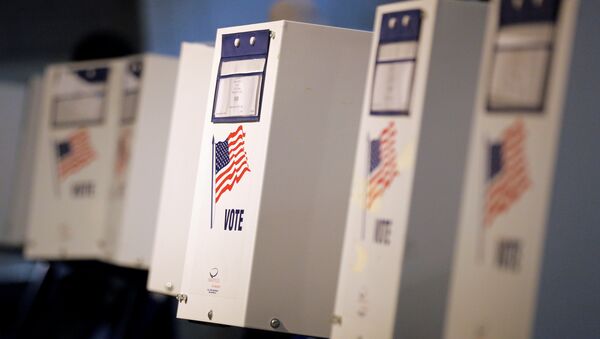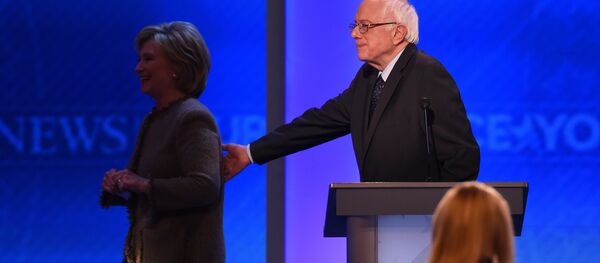Radio Sputnik's Brian Becker, host of the Loud & Clear program, was joined by Nantina Vgontzas, sociology PhD student at New York University, and Cassandra Fairbanks, Sputnik News reporter, to discuss how elections in the United States are not quite as free and fair as textbooks and constitutional scholars would have you believe.
According to a recent AP report, voters in the US are treated unequally. Some wait in long lines outside after traveling many miles from their homes. Voters in some states can register on the day they vote, while residents of other states must register days, weeks or months in advance. Some voters can sign an affidavit, in the form of a written sworn statement of fact, if they cannot provide photo identification, while others must have official ID or they cannot vote. The rules differ among states and, nationwide, voters face unequal standards.
Recalling a notorious "purge" of voters in New York state earlier this year, Vgontzas pointed out that the official reason given was that purged voters did not participate in earlier elections. During that incident, Vgontzas found that she had fallen into a special category of voters that are registered but did not participate in recent elections (she moved to New York just prior to the events).
Despite having registered for the April primary elections in time, the processing of her application took much longer, and polling station election staff gave her an affidavit ballot, known to be an easily overlooked form of voter submission. Vgontzas stated that she was "pretty persistent" that the staff was legally obligated to be provided with an ordinary ballot.
"People are very familiar with how the DNC favored the Clinton campaign from the top, but even at my local polling station I was met with intransigence when I demanded to speak with my local Board of Elections. It was pretty clear that the people there didn't want me to cast the ballot," she said
When Vgontzas did come to the Board of Elections, she observed many young people meeting with the judge in an attempt to receive the right to vote as a Democrat.
"Unfortunately, a lot of those people were turned away. Mostly, they were Independents who were inspired by the Bernie [Sanders] campaign."
Independents seeking to cast a ballot for Bernie Sanders in the Democratic primary were turned away because, according to the New York law, Democrats in the state must be registered 180 days prior to the primaries.
Tens of thousands of Bernie Sanders supporters in New York state, ignorant of the 180-day rule, were not permitted to vote for their candidate. Legally, this is their own fault, but, as other states have same-day registration, the primary may have been thrown because of the unequal electoral processes among the 50 states
"That's just one instance of much bigger thing that was going on in New York," Vgontsaz said.



